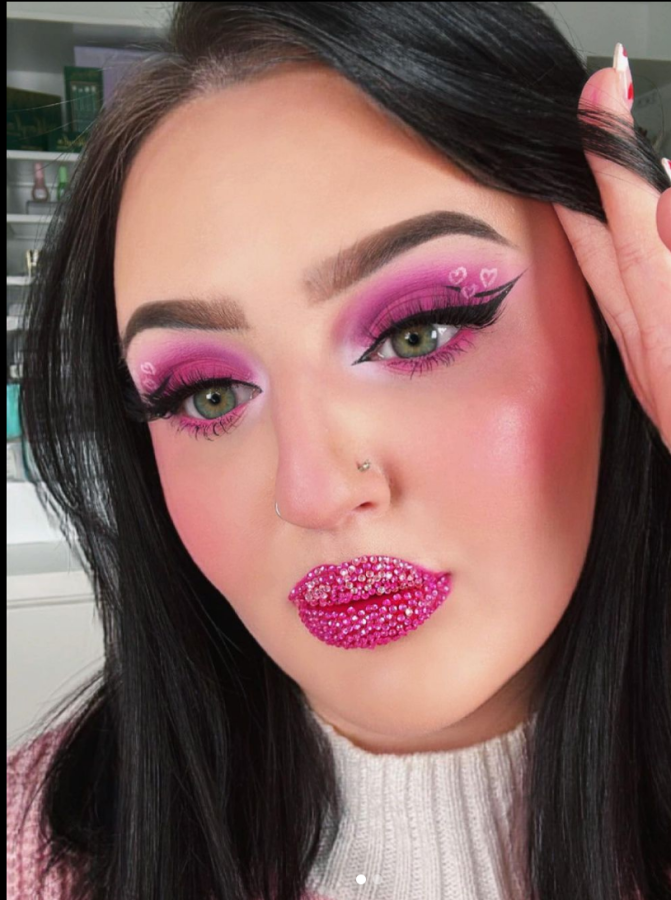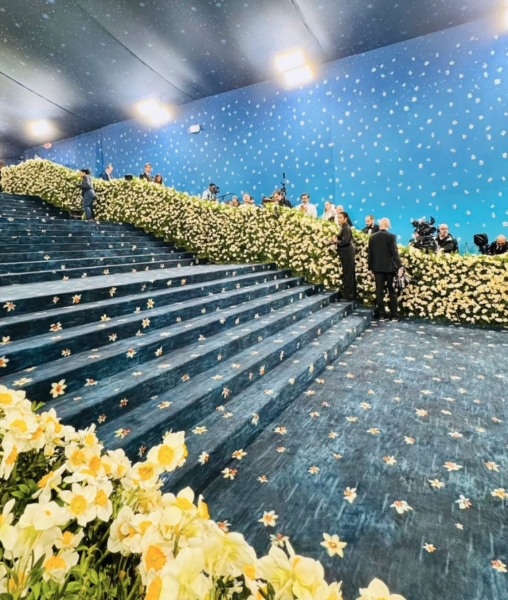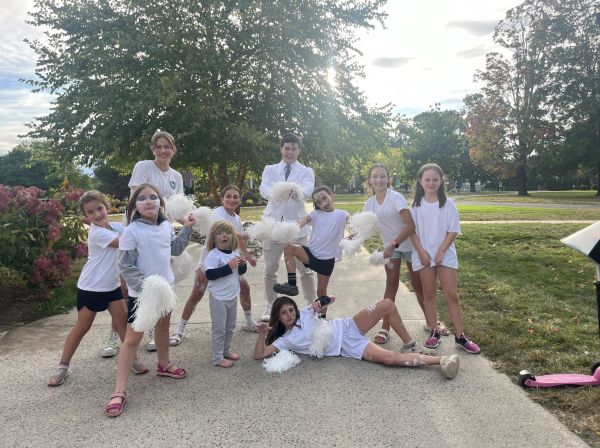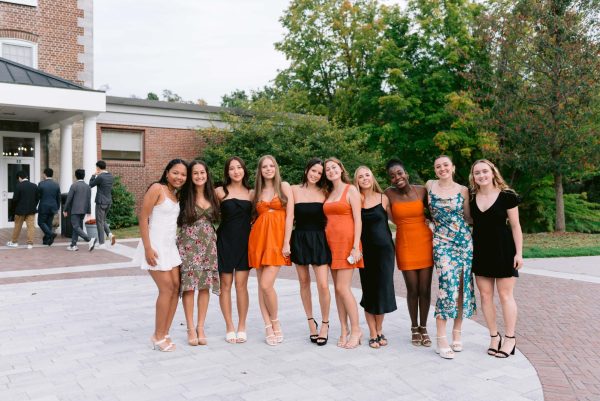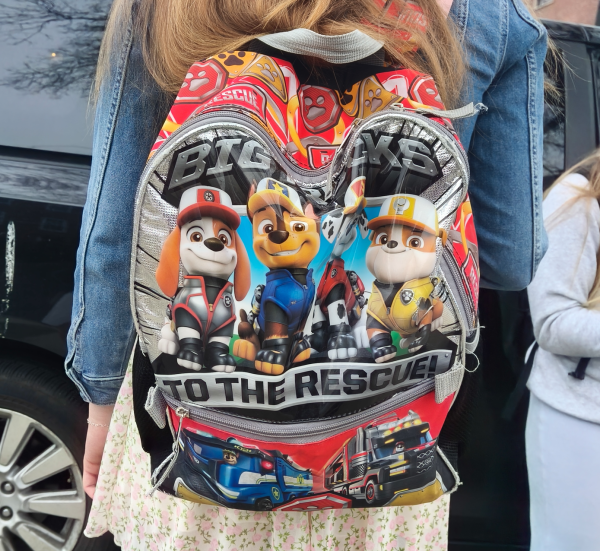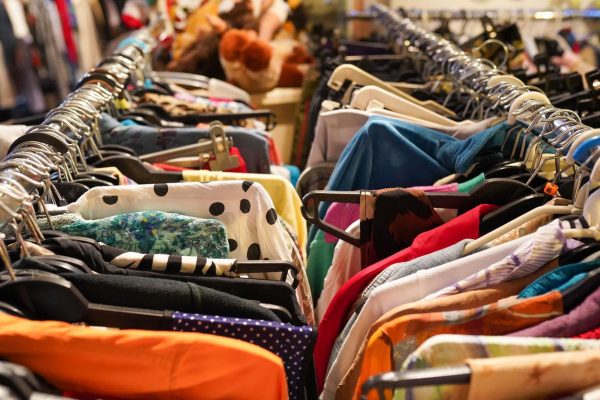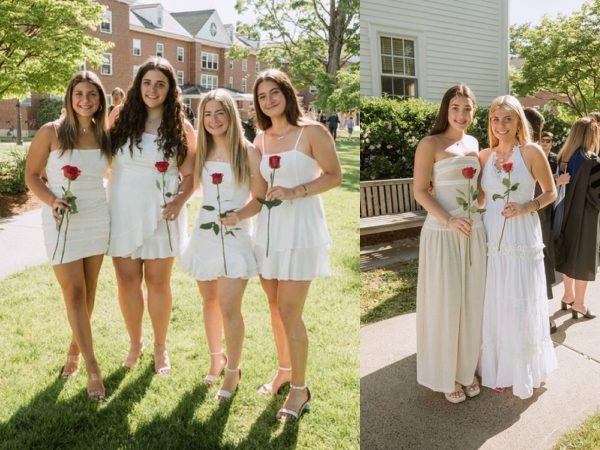“Lashgate” and the Drama of an Influencer’s TikTok Trick
Mikayla Nogueria is 24 years old, has 14.4 million followers on TikTok, is eagerly anticipating her wedding, and has a sizable portion of the internet annoyed at her.
On January 24, Nogueira, born and raised in Massachusetts, published a TikTok as a promotion for L’Oréal’s Telescopic Lift mascara, which L’Oréal claims “gives lashes instant lift, volume & length.” In the 44-second video, Nogueria applies the mascara on camera, describing the effects as similar to those of wearing false eyelashes, generally worn to provide length and volume.
The controversy comes with a cut in the middle of the video, between the application of mascara to one eye in the other. Though Nogueria claimed the dramatic change in her lashes before and after came entirely from L’Oréal’s Telescopic Lift, long-time viewers were quick to notice what seemed like an increase in the number of individual lashes on Nogueria’s eyes before and after the cut on the volume. To those unfamiliar with the effects of mascara, it can lengthen and add volume to preexisting lashes, but, unlike false lashes, cannot increase the number of lashes.
Fellow makeup influencers swiftly made follow-up videos, some coming to Nogueria’s defense, and others actively made vidoe to prove her initial claim to be false. Amidst the discourse, Nogueria’s video quickly blew up; it currently sits at over 55 million views.
This was not Nogueria’s first encounter with controversy, having previously faced accusations of using filters on videos said to be unfiltered, not properly disclosing advertisements, and faking, or at least heavily exaggerating, her strong Boston accent. However, it was the L’Oréal incident, dubbed “Lashgate” which has inspired stories from mainstream publications such as Rolling Stone, and response videos from former titans of the online beauty sphere, such as Jeffree Star.
Star himself has been “canceled” many times over within the industry with reasons ranging from petty arguments between himself and fellow influencers over Coachella tickets, to video proof of Star, born Jeffrey Lynn Steininger Jr, using racially-motivated hate speech.
Star publicly announced plans greatly reduce his social media output in the summer of 2020 following the latter accusations. However, Star has not stuck to this promise, instead continuing to post to his 15.9 million YouTube subscribers and more recently, his 4.3 million TikTok followers. Star was quick to make a video criticizing Nogueria, posting a TikTok on Jan. 26 in which he tries Telescopic Lift himself and reminds Nogueria she “sets the tone” for makeup on TikTok. His video has since garnered over 19.8 million views. This was his first makeup review in over two months.
Something important to note is Star owns a makeup line, Jeffree Star Cosmetics, which sells its own mascaras. Although he frequently claims his reviews are “100% unbiased,” he has a vested interest in the success of his line and his collaborations with other beauty brands.
Despite this, he has received numerous comments on his January 26 video praising him, including ones reading “in Jeffree [sic] Star we trust” and “Thanks Mikayla for bringing him back atleast”[sic].
This outpouring of support raises the following questions: should we support influencers with incredibly dubious pasts in the name of “honest” reviews, and how much can we trust those whose ultimate goal is for their audience to spend money? However, not everybody has agreed with Starr’s reentry into the online beauty world.
“So many problematic men have profited from the online beauty community like Jeffree Star and James Charles,” said Jenna Perry, a ’21 Williston alum and sophomore at Bates College. But if a woman partakes in false advertising, which they all (men and women) do, and she gets crucified.”
In the past decade, seemingly normal individuals have been able to gain enormous public platforms and followings as a result of the advent and rise of social media. Whether their specialty is gaming, finical advice, molecular science, makeup knowledge, or virtually any other field, almost all influencers whose full-time job is online become walking advertisements.
Alix Earle, a 22-year-old student at the University of Miami gained traction towards the end of 2022 for her beauty and lifestyle vlogs. Many fans of Earle cite her “realness” as a reason for following her. As a result of her large following, Earle has received sponsorships and partnerships with numerous makeup brands, notably Charlotte Tilbury and Tarte Cosmetics. Under the hashtag “alixearleeffect” TikTok users have posted empty shelves which normally house products Alix uses, sold out as the result of her recommendation. There is no denying the effect popular influencers have on modern commerce. Even those who don’t ardently support her are at least aware of her presence.
All three of the previously mentioned influencers and the products they recommend have been involved in some sort of scandal or controversy. Nogueria is currently recovering from “Lashgate,” while Starr never fully recovered from the following lost in 2020, and Earle has recently been criticized for traveling to Dubai, a country that has outlawed homosexuality, with Tarte Cosmetics.
All three of these influencers also gained their following through a cult of personality; in short, they became popular because people like them or find them interesting people as well as trust their makeup skills and recommendations. There is nothing wrong with buying a product because someone you know, or trust uses it. It may often feel like you know an influencer through a parasocial relationship formed with them. But at the end of the day, gurus with tens of millions of followers do not care about fans on an individual level, and they are not above lying if it means a sizable check.



